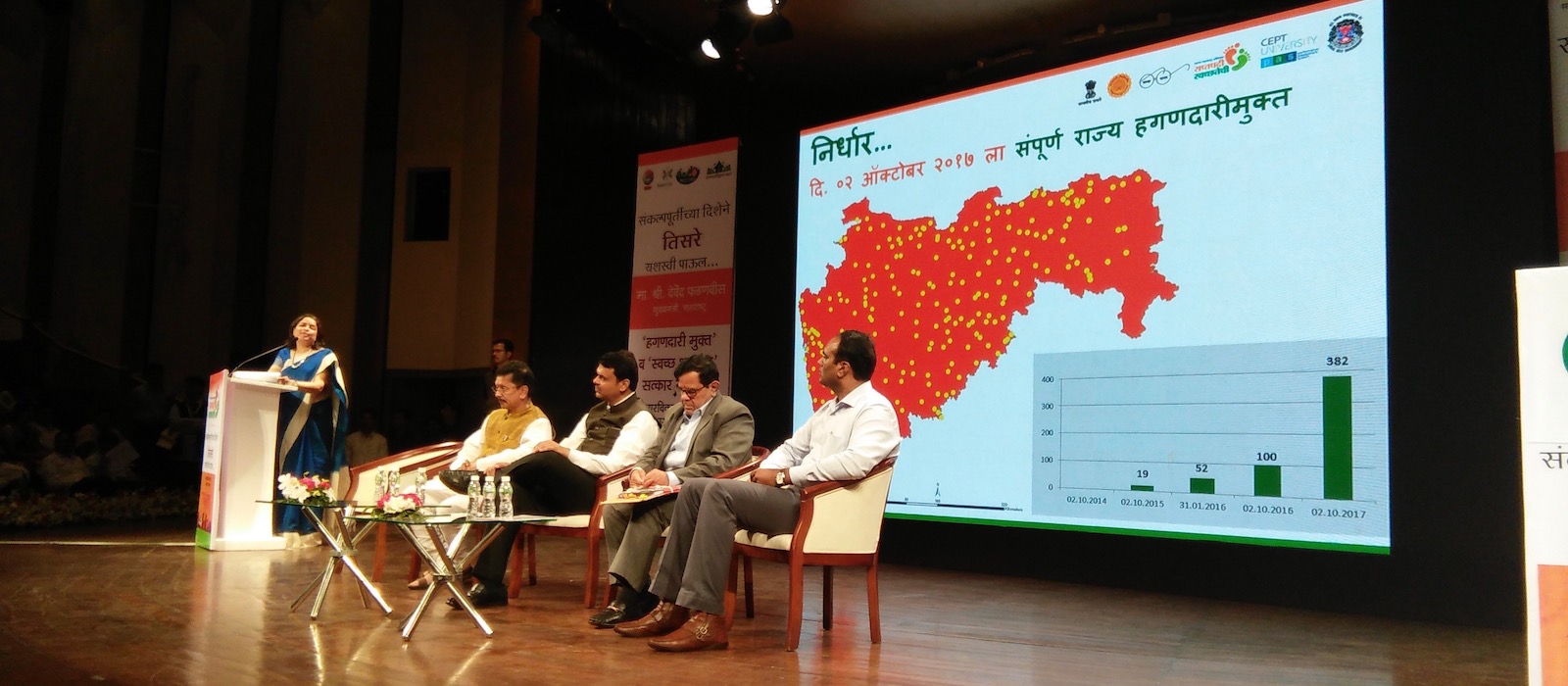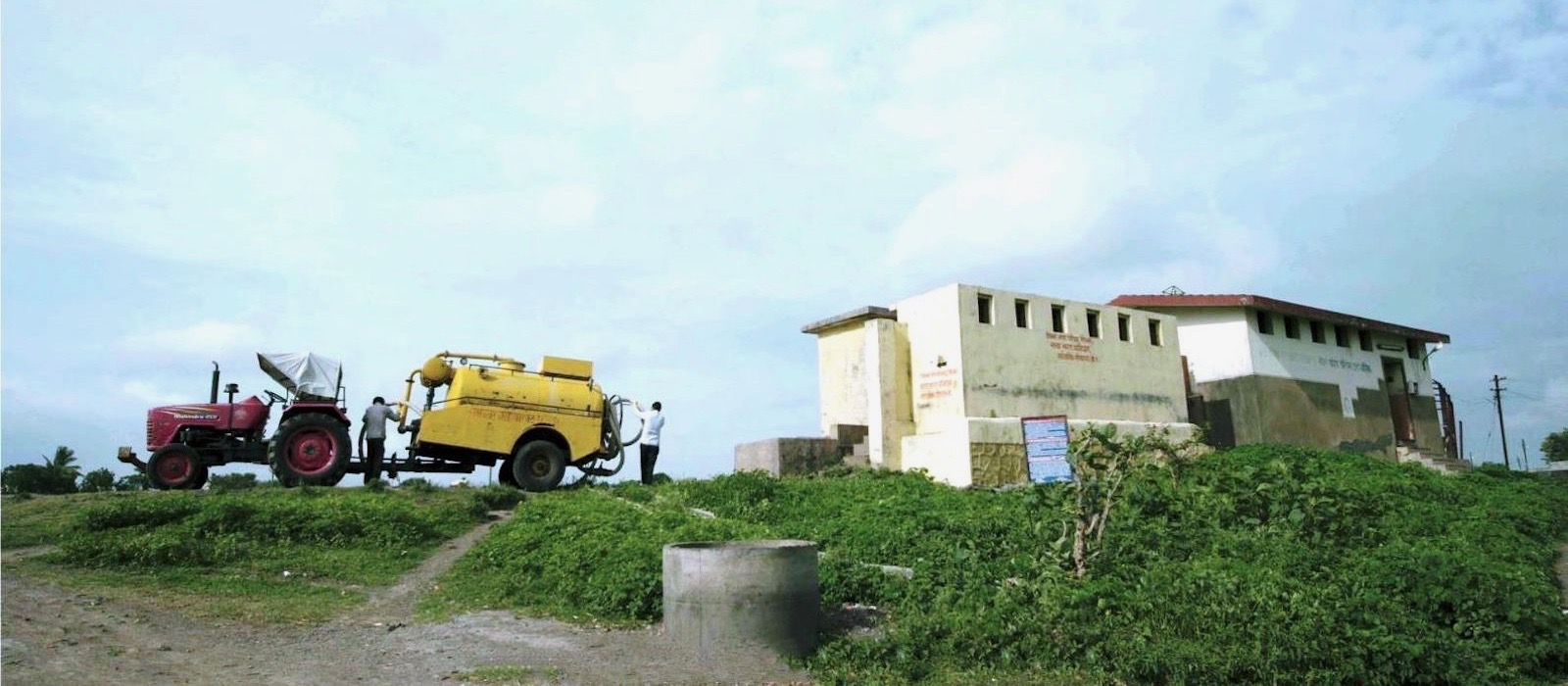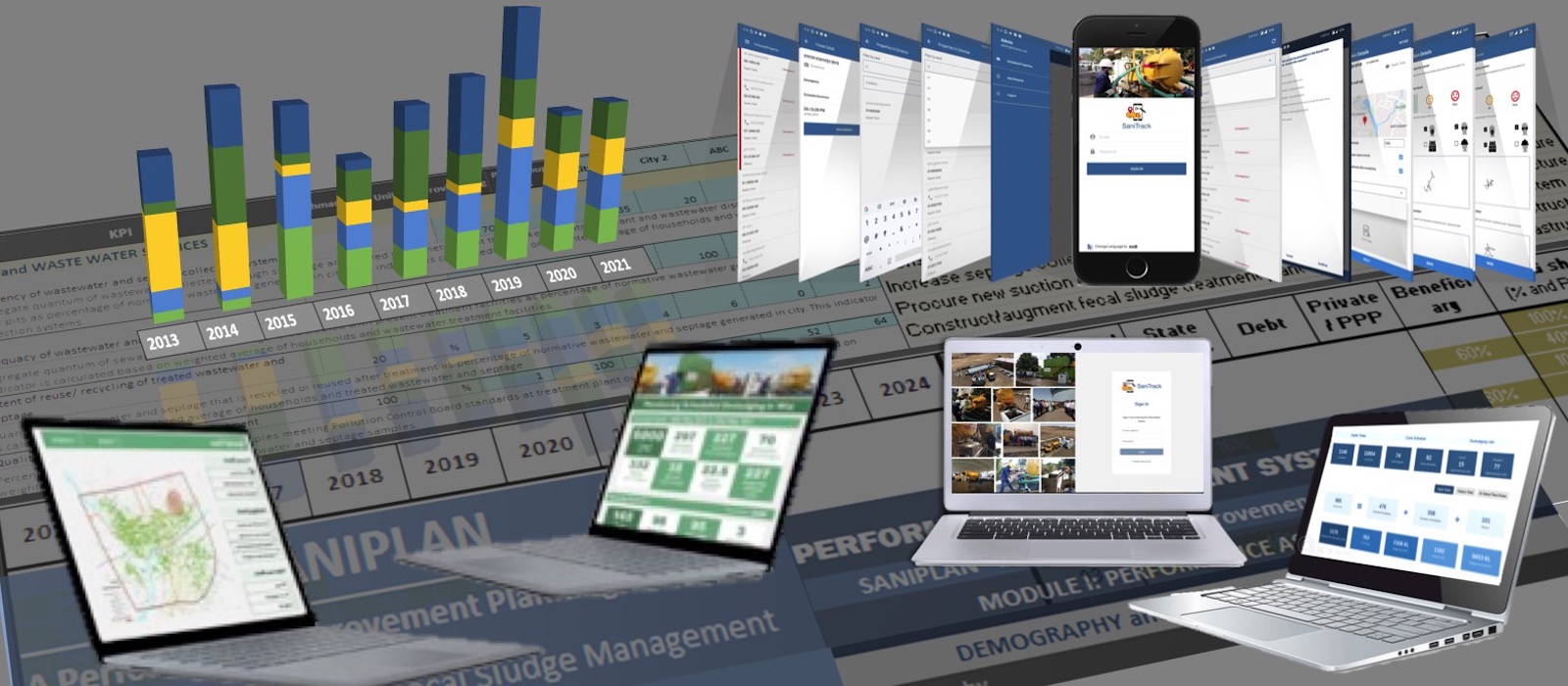Sanitation
Sanitation is recognised as a global development priority through SDG 6 and its Target 6.2 which calls for adequate and equitable safe sanitation for all and ending open defecation. CWAS activities on urban sanitation are aligned to this target that calls for moving beyond just the provision of toilets to work towards safely managed sanitation which is critical for ensuring the health of people and the environment. As urbanisation intensifies, the urgency for addressing urban sanitation challenges becomes important.
In India, sanitation has been given priority in various national flagship programmes. In August 2014, sanitation came to the forefront of public discourse with the launch of the Swachh Bharat Mission that aimed to make India Open Defecation Free (ODF). This mission is overarching and encompasses all aspects of sanitation from behaviour change to building efficient infrastructure systems to address the entire service chain. It has put India on the path for achieving SDG Target 6.2 for providing universal access to safely managed sanitation.
It is within this context that our work on urban sanitation has focused on statewide and citywide sanitation. Our work is with national, state and local governments to enable scalable solutions for providing safely managed sanitation services to all. At the state and national level, we support the development of policies, guidelines and strategies for the effective implementation of sanitation programmes. We support urban local governments to develop city-wide inclusive sanitation plans and implement them. We support cities to become open defecation free (ODF) and move towards ODF++. We have focused our work on small and medium towns. In addition, we have conducted studies to understand policy provisions, regulations, institutional mechanisms and market opportunities that govern and manage on-site sanitation solutions.


